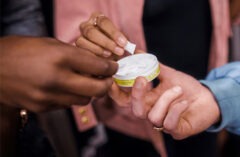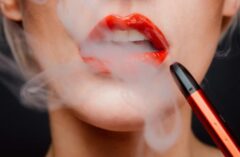Table of Contents
Introduction and Recap
Last year, the University of California declared that all tobacco products would be banned on its campuses beginning January 1st, 2014. Up until today, January 14th, there had been a lone holdout bucking this overreach: UC Irvine.
Quote: Though other schools, including the system’s flagship UC Berkeley campus, welcomed the New Year by banning pretty much everything with nicotine — cigarettes, cigars and e-cigarettes, not to mention “snuff, water pipes, pipes, hookahs, chew and any other non-combustible tobacco product” — UC Irvine expressed its independence through its own policy, which only banned items that created dangerous secondhand smoke. Indeed, it referred to the policy set down by then-UC President Mark Yudof as a “request” in one news story on its website.”
That has now changed.
As announced today in an online article on the San Francisco Business Times, which you can read here:
But there is a problem, and it’s the same problem that is likely to be encountered in any ban on vaping and/or the use of most other alternative means of nicotine consumption.
What Is The Problem?
The problem I’m referring to is detection. And it’s not a trivial problem. Not only is it a serious problem for those looking to enforce bans on vaping or snuff, it’s a very serious problem for those who have to live under the thumb of these authoritarian bans, as well.
You see, unlike analog cigarettes, which produce a dis-stink-tive odor, and unlike American chewing tobacco, which causes its users to spit horrific brownish globs of similarly “fragrant” goop on a regular basis, the vapor from electronic cigarettes doesn’t produce any one scent, and it doesn’t produce any scent as strongly or that lingers as long as the smell of smoke.
Nasal snuff, to go even further, produces no scent, ever.
So the problem for authoritarians is that these bans are difficult if not nigh unto impossible to enforce.
The problem for students in the UC system is that they very well might try anyway. And in order to do it, they’re going to have to resort to a level of Orwellian surveillance and police-state style thuggery unlike anything that should ever be seen anywhere, but which will be most especially unwelcome on a college campus.
What are they going to do, launch a formal inquiry into every student whose dorm room smells like cookies or ice cream? Summon every student who sneezes or blows his nose into the Dean’s office and grill him about whether it’s because he’s got a cold or because he took a pinch of snuff?
Because that’s what it’s going to take. And that’s why this ban is absolutely counterproductive; as such bans are fated always to be. Because this ban is just another kind of Prohibition. And like every kind of Prohibition, it is destined to ultimately fail. The only question is how many lives it’s going to ruin before the authoritarians finally have no choice but to recognize the failure.
John Castle





